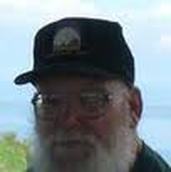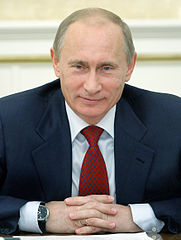 Vladimir Putin Vladimir Putin Putin's United Russia Party won its largest majority in the State Duma ever. It captured 343 out of 450 seats with 99 percent of the votes counted. This is a large enough majority to allow Putin to be able to change the constitution if he wishes. International observers criticized the political restrictions on the campaign. Likka Kanerva, special co-ordinator for monitors from the Organization for Security and Cooperation in Europe(OSCE) said that while the election was carried out with "improved transparency and trust", the campaign was "negatively affected by restrictions of fundamental freedoms and political rights, firmly controlled media and a tightening grip on civil society".The four parties that passed the 5 percent support mark and were able to gain seats in the Duma were: United Russia with 54.2 percent, Communist Party 13.4 percent, Liberal Democratic Party 13.2 percent and Fair Russia 6.2 percent. In spite of a recession which is the longest in two decades, Putin and United Russia remain popular. Russian action in Crimea and the Ukraine has actually resulted in an increase in Russian nationalism and support for Putin. Putin said that Russia did not need any "shock therapy" to come out of the recession but balanced economic and social reforms. However, the recession has taken its toll on Putin's popularity which peaked at 60 percent 18 months ago but is now about 40 percent as there has been a steep decline in average income of Russians. The Kremlin tried to avoid fraud allegations by appointing long-time human rights advocate, Ella Pamfilova to head the election commission and also 500 OSCE monitors observed the election. Kanerva of the OSCE said that there were procedural irregularities at vote counts, and local authorities did not always treat contestants equally. Some state employees complained there was pressure on them to vote for United Russia. Turnout was low compared to previous elections at 48 percent. In 2011 the turnout was 60 percent. United Russia won over three quarters of the seats in the Duma as compared to just over half in the 2011 election. In spite of the gain in seats almost 4 million fewer Russians voted for United Russia this election. There were especially low turnouts in Moscow and St. Petersburg. There appear to be no signs of the street protests that erupted after the 2011 election. The win will probably encourage Putin to run for a fourth term for president. Putin said it was too early to say if he would run for president in 2018.
0 Comments
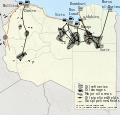 Libyan oil ports and lines Libyan oil ports and lines Last week forces of the eastern-based General Khalifa Haftar were able to take over the four main ports of the Libyan Oil Crescent, Ras Lanuf, Brega, Es Sidra, and Zuwetina. There was little resistance from the Petroleum Facilities Guards (PFG) who had control of the ports. The PFG under its leader Ibrahim Jadhran had reached a deal with the GNA to reopen the ports. Jadhran supports the GNA. Jadhran and Haftar, head of the Libyan National Army and loyal to the rival to the GNA the government of the House of Representatives (HoR), are mortal enemies. When Haftar seized the ports, many, including Martin Kobler UN envoy to Libya and a number of western nations thought that export of oil would be delayed. However, Hafter turned over the ports to the NOC even though he does not recognize the GNA. However, it seems that now the remaining PFG forces loyal to Jadhran have launched a counter-attack on Haftar aimed at retaking the ports. Mohamed Ibset, spokesperson for Haftar's forces said:"The Petroleum Facilities Guard (PFG) launched an offensive this morning and (our forces) are fighting them in Ras Lanuf." The PFG said it had launched counterattacks on two of the oil ports. A spokesperson said: "We attacked Al-Sidra and Ras Lanuf, and Haftar's forces are trying to hit us with their warplanes." Muftah al-Muqarief, who is in charge of oil guards loyal to Haftar said the counter-attack was launched from the west by "militias backed by outlaws". He said the attacks had been repelled and the attackers were being chased, with some being captured. However, there is no independent confirmation of these reports. It may take some time before the situation becomes clear. There are reports that the PFG forces were attacked by foreign airplanes. Some reports also suggest the counter-attack was repelled. The Libyan ambassador from the UK, Peter Millet said in a tweet that the two sides should show restraint. There had been optimism that oil exports and production were about to increase providing badly need revenue to Libya. Sources: http://www.libyaobserver.ly/news/foreign-airstrikes-rescue-dignity-operation-militias-again http://www.digitaljournal.com/news/world/new-fighting-hits-libya-s-oil-crescent-military-source/article/475130 https://twitter.com/MaryFitzger/status/777487775604019200?lang=en http://www.wsj.com/articles/fighting-restarts-at-libyas-eastern-oil-ports-1474201178 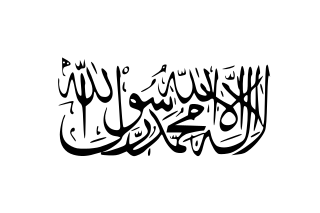 Flag of Taliban Flag of Taliban Taliban forces are converging on the capital of Uruzgan province, the city of Tarin Kot. Uruzgan is a central province of Afghanistan. A report from Reuters claimed that the Taliban were within a few kilometers of Tarin Kot . Officials warned that it would collapse unless there was air support and ground reinforcement. A more recent report from the New York TImes indicates the Taliban had advanced further. Dost Mohammad Nayab, a spokesperson for the governor of Uruzgan said that all security posts around the city had been taken over by the Taliban and they had begun firing on the police headquarters and government compound. However, he also said that 200 Afghan commandos arrived late on Wednesday, but so far there had been no air support from NATO. A spokesperson for the Interior Ministry, Sediq Sediqqi, said that special forces from an elite task force in Kandahar had reached the capital by Thursday morning. Presumably these are the commandos mentioned earlier. Abdul Khadimzai of the provincial council said the city was under lockdown, with only security forces on the streets. He also said that the police chief and other officials had sought shelter at the airport. However, Gen Wais Samimi, the police chief said he was sill at headquarters. Khadimzai, said the Taliban had issued warnings that they would be entering the city. Uruzgan officials and Mr. Khadimzai blamed the police for abandoning 20 checkpoints without a fight overnight. Military officials in Kabul fear there was a conspiracy.Mr. Nayab said: “The whereabouts of the police are not known, whether they have joined the Taliban or escaped somewhere. We are busy now with making plans to defeat the enemy but will need to investigate what made them leave the posts without fighting.” There are conflicting statements from the two sides. A Taliban commander Mullah Hameedi claimed that they had taken control of the central prison only to find that inmates had been taken to the airport. However, Sediqqi of the Interior Ministry claimed that a Taliban attack on the prison had been repelled. By late Thursday afternoon Nayab said the situation was improving as NATO airstrikes between hitting Taliban positions. Also, General Abdul Raziq the powerful police chief from neighboring Kandahar province had arrived with reinforcements. Tarin Kot is said to have about 70,000 inhabitants. 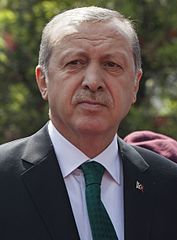 Recep Erdogan, Turkish president Recep Erdogan, Turkish president Turkey along with rebels it supports from the Free Syrian Army (FSA) started a new line of attack in northern Syria with tanks rolling across the Turkish border seizing several village from the Islamic State (IS). The incursion came from Kilis province, a province often targeted by IS rockets. Dogan news agency said Turkish tanks crossed into northern Syria from Kilis province on Saturday, while howitzers pounded ISIS positions in the area. There was a separate push by Turkish-backed rebels from the east. The rebels are mainly Arabs and Turkmen, part of the FSA. Last week rebels took the border town of Jarablus again with Turkish support. The operation called Euphrates Shield has the dual purpose of taking territory controlled by the Islamic but equally important to keep the US supported Kurds and their allies from advancing west of the Euphrates. The Turks worry that the Kurds could advance westward and link up with another Kurdish enclave further west. On Saturday Turkish tanks entered the town of al-Rai to support rebels who already control the town. Al-Rai is approximately 55km (34 miles) west of Jarablus. It is part of a 90 km corridor next to the border Turkey hopes to clear of the IS but also will serve to prevent any possible Kurdish expansion. A senior official, Zakaria Malahifiji said: "They took several villages, about eight villages. At first they took two and withdrew from them, but then reinforcements came and there was an advance. Turkish airplanes had carried out airstrikes on Arab Essa a village about 30 km west of Jarablus, that was captured today. Turkey disagrees with the US on the status of the Kurdish YPG militia. The US sees it as a key ally in attacking the IS whereas Turkey considers it a terrorist group. At the G20 meeting in China, Turkish president, Recep Erdogan, said: "There is no good terrorist. All terrorists are bad. All organizations involved in terrorism are cursed. This is how we see things and how we put up our struggle." Turkey claimed it had no desire to stay in Syria but was trying to protect its border from the IS and the YPG. It was thought that the rebels might move south towards the town of Mabij controlled by the Kurdish coalition of rebels supported by the United States. The Turks may believe that US pressure will convince the Kurds to move back to east of the Euphrates river. It remains to be seen if this will actually happen. It seems inevitable that the Kurds in Syria and the Turks will have difficult relations. |
Like this writer's work please donate:
Ken Hanly
Ken is a retired philosophy professor living in the boondocks of Manitoba, Canada, with his Filipina wife. He enjoys reading the news and writing articles. Politically Ken is on the far left of the political spectrum on many issues.
Archives
November 2016
Categories
All
|
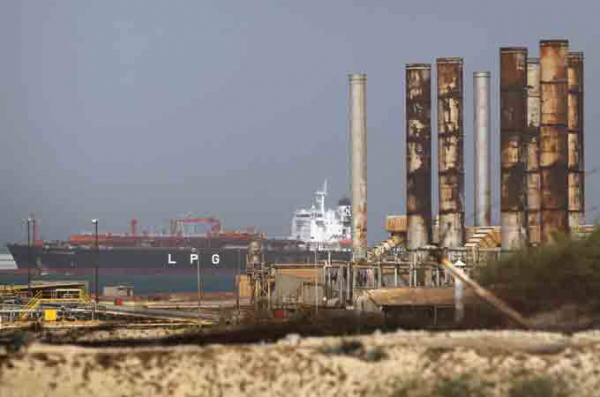
 RSS Feed
RSS Feed
